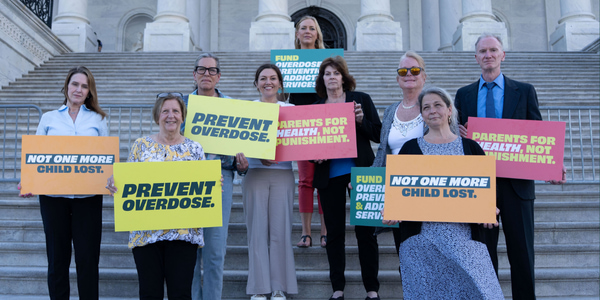
In May 2025, a poignant demonstration unfolded in Washington, D.C., as a coalition of parents united by shared tragedy and determination made their voices heard in Congress. These individuals, many of whom have tragically lost children to overdose, gathered to advocate for much-needed reforms in drug policy and addiction treatment. Their objective was resolute: to push for increased investment in health initiatives focused on treatment and overdose prevention.
This gathering was not just a protest but a plea for action driven by personal experiences of heartache and loss. The parents, representing a chorus of grief and hope, underscored the urgent need for systemic change in how society addresses addiction and drug-related health crises. As they shared their heart-wrenching stories, they highlighted the necessity for a paradigm shift towards health-based solutions rather than punitive measures.
According to the Centers for Disease Control and Prevention (CDC), the United States has seen an alarming rise in overdose deaths over the past decade, with synthetic opioids playing a significant role in this crisis. This tragic trend has amplified the need for immediate action, not only to save lives but to provide comprehensive support for those battling substance use disorders. Specialists in public health emphasize that effective strategies must prioritize treatment accessibility, support systems, and educational programs aimed at prevention.
The coalition’s message resonates with a growing movement advocating for more compassionate and evidence-based approaches to addiction. Organizations focused on drug policy reform have increasingly stressed the importance of investing in mental health services, expanding access to treatment facilities, and implementing harm reduction strategies, such as supervised consumption sites and increased availability of naloxone, an opioid overdose reversal drug.
The march serves as a reminder of the personal toll of the ongoing overdose crisis and the imperative for legislative action. It echoes a call from many within the medical and public health communities, who argue that treating addiction as a health issue rather than a criminal one is crucial in combating this epidemic.
As policymakers grapple with these pressing issues, the emotional testimonies of these parents serve as a compelling prompt for action. Their advocacy underscores a collective resolve: to foster a society that prioritizes health, compassion, and resilience in the face of an ever-growing public health challenge. In doing so, they aim to ensure that no other family has to endure the profound loss they have faced, advocating relentless for the investment in solutions that can save lives and build healthier communities.

